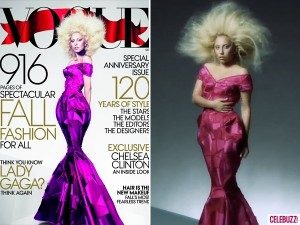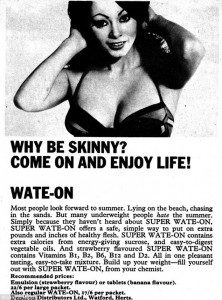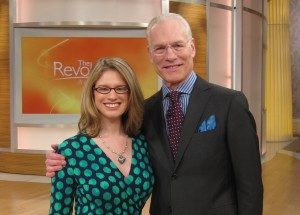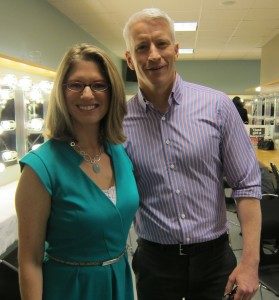TV Anchor, Jennifer Livingston, Called Fat: Fights Back Against Her Body Bully
(Note; My Today Show Health Report Interview on this topic included below)
The internet blew up yesterday with applause for Jennifer Livingston, a TV anchor in Wisconsin, who spoke out about fat hatred and what I call, “body bullying” after receiving a derogatory email from a viewer about her weight.
The viewer’s email read;
“Obesity is one of the worst choices a person can make and one of the most dangerous habits to maintain. I leave you this note hoping that you’ll reconsider your responsibility as a local public personality to present and promote a healthy lifestyle.”
Jennifer fired back with a very thoughtful, stern and directed response.
“The internet has become a weapon. Our schools have become a battleground. And this behavior is learned – it is passed down from people like the man who wrote me that e-mail. If you were at home talking about the fat news lady – guess what? Your children are probably going to go to school and call someone fat. We need to teach our kids how to be kind – not critical and we need to do that by example. So many of you have come to my defense over the past four days.
To my colleagues and friends from today and from years ago…my family, my amazing husband and so many of you out there that I will probably never have the opportunity to meet – I will never be able to thank you enough for you words of support. And for taking a stand against this bully. We are better than that e-mail. We are better than the bullies that would try to take us down.
And I leave you with this… to all the children out there who feel lost…who are struggling with your weight, the color of your skin, your sexual preference, your disability – even the acne on your face…listen to me right now. Do not let your self worth be defined by bullies. Learn from my experience that the the cruel words of one…are nothing compared to the shouts of many.”
I was interviewed by the Today Show Health Report about this incident.
Livingston’s move is a step toward civility in a society that thinks a woman’s weight is fair game, said Dr. Robyn Silverman, a body image expert and author of the book “Good Girls Don’t Get Fat: How Weight Obsession is Messing Up Our Girls & How We Can Help Them Thrive Despite It.”
“I applaud her for her response,” Silverman said. “It was a very responsible response.”
We’ve become a “fault-finding” society where it’s acceptable to make snarky comments about anyone, but especially those in the public eye, Silverman said.
When Livingston stood up to the mean-spirited viewer, she was helping combat the messages that say it’s OK to judge people based on weight.
“We send the message to our children that they are not good enough, they are not valuable enough, unless they look a certain way,” Silverman said.
While the fat-shaming speaks volumes to the girls and young women today who must constantly hear these messages wherever they go, it wasn’t the direct slams on Livingston’s weight that frustrated her the most.
On the Today Show this morning, Livingston told Savannah Guthrie;
“I can deal with being called fat … with being called obese. It was calling me a bad role model that rubbed me the wrong way, and not only a bad role model for our community, but for young girls, in particular.”
Young girls need to see and hear that they can be and do whatever they dream of in life– that their determination, hard work, smarts and talents will put them in the forefront- no matter what their weight, size, height or overall appearance. We need more women (and men) like Jennifer Livingston who stand up and tell the world that they are worthy just the way they are– and that bullies should not and will not define them. But they especially need to hear that as girls and young women, that they are valuable too– that they set their own path and their own definition of worth. Jennifer Livingston did just that– and for that, I truly applaud her.
Yes, she certainly seems like a role model to me.

 I was recently
I was recently  “Enjoy life!” “Put on 5 pounds of flesh!” “Left out because you’re too skinny?” Vintage ads paint the picture that full-figured women were the beauty standard of their era.
“Enjoy life!” “Put on 5 pounds of flesh!” “Left out because you’re too skinny?” Vintage ads paint the picture that full-figured women were the beauty standard of their era. These days it seems that people say the word “fat” like they are spitting it out on a plate. This can be really confusing and upsetting for young girls who are going through puberty—a time when it’s very normal and natural to gain an average of 25 pounds! As a young girl or women is gaining weight, many look at it as “getting fat.” It’s common that people bemoan ‘I feel fat” or call themselves ugly names like “whale,,” “pig,” or “heifer.”
These days it seems that people say the word “fat” like they are spitting it out on a plate. This can be really confusing and upsetting for young girls who are going through puberty—a time when it’s very normal and natural to gain an average of 25 pounds! As a young girl or women is gaining weight, many look at it as “getting fat.” It’s common that people bemoan ‘I feel fat” or call themselves ugly names like “whale,,” “pig,” or “heifer.” What would it have been like to live at a time when people thought it was more beautiful to be buxom that thin? Or is the pressure the same whether it’s to be thin or to gain weight in order to fit in?
What would it have been like to live at a time when people thought it was more beautiful to be buxom that thin? Or is the pressure the same whether it’s to be thin or to gain weight in order to fit in?
 Challenge Reveal with Ryan-Ashley and Terry- newly confident and ready to show the world just how beautiful they are! Positive body image never looked so good!
Challenge Reveal with Ryan-Ashley and Terry- newly confident and ready to show the world just how beautiful they are! Positive body image never looked so good!

 On the set of The Revolution, along with Dr. Tiffanie Davis Henry, I speak with 2 women who are embarking on a 20 day swimsuit challenge. My feeling is that the real change must come from the inside. How they feel about their bodies, how they talk to themselves, and how they recognize all the wonderful things their bodies allow them to do everyday can change their perspective.
On the set of The Revolution, along with Dr. Tiffanie Davis Henry, I speak with 2 women who are embarking on a 20 day swimsuit challenge. My feeling is that the real change must come from the inside. How they feel about their bodies, how they talk to themselves, and how they recognize all the wonderful things their bodies allow them to do everyday can change their perspective. What do you think? I’ll be back in the studio for the “reveal” and we’ll see how far these women have come! What wonderful people– and I loved meeting Dr. Tiffanie and Tim Gunn. Lots of fun…looking forward to reveal day!
What do you think? I’ll be back in the studio for the “reveal” and we’ll see how far these women have come! What wonderful people– and I loved meeting Dr. Tiffanie and Tim Gunn. Lots of fun…looking forward to reveal day! It’s International Women’s Day—a day to reflect on the amazing women and girls in our lives but also to ponder what’s to come for the up and coming women in the world.
It’s International Women’s Day—a day to reflect on the amazing women and girls in our lives but also to ponder what’s to come for the up and coming women in the world.

 Thanksgiving is my family’s favorite holiday. Is it one of yours too? There’s something so powerful about a holiday that everyone celebrates in America because it is part of American culture, not religion. But you know what can really ruin a good holiday meal? Fat Talk.
Thanksgiving is my family’s favorite holiday. Is it one of yours too? There’s something so powerful about a holiday that everyone celebrates in America because it is part of American culture, not religion. But you know what can really ruin a good holiday meal? Fat Talk.